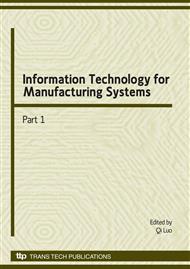p.1269
p.1274
p.1280
p.1286
p.1292
p.1299
p.1305
p.1311
p.1315
MAS Learning Based on Bayesian Learning Method
Abstract:
Mulit-agent system[MAS] research on learning has been in the area of negotiation, and learning strategies of other agents.This paper presents an agent learning approach in multi-agent system based on Bayesian learning, it researches to develop agents that learn free-text queries and keyword searches in MAS. The MAS learns to identify an appropriate agent to answer free-text and natural language queries as well as keyword searches submitted by users. The paper describes how Bayesian learning is implemented in MAS, and analyzes the effectiveness of MAS learning based on the Bayesian learning approach by analyzing the accuracy and degree of learning.
Info:
Periodical:
Pages:
1292-1298
Citation:
Online since:
January 2010
Authors:
Keywords:
Price:
Сopyright:
© 2010 Trans Tech Publications Ltd. All Rights Reserved
Share:
Citation:


